# Malaysia's Wong Kai Hui is 2021’s Thomson Foundation Young Journalist Award winner, and one of the reports she made is as follows...2021 Thomson Foundation Young Journalist Award - Malaysia's Wong Kai Hui - CONGRATULATIONS
SPECIAL REPORT | Dr Subatra Jayaraj was preparing spinal anaesthesia when Che Nusrat (not her real name) was brought in for a diabetic foot ulcer operation.
Wearing a headscarf, the woman in her 60s had been in the hospital for two weeks and this was her third time under the knife.
"It was only on the third time that we realised she was a transwoman who had not undergone reassignment surgery yet," Subatra recalled.
"Unfortunately, as the health team had to report it, the decision was made to transfer her to the male ward because her ID refers to her as male.
"Can you imagine, this lady, who has probably lived and dressed her entire adult life as a woman in her community, having to move to a male ward because of policy and procedure?
"My heart went out to her, for the unfairness that the discriminatory health system insists on putting on patients with diverse gender identities," she added.
This is what transgender people experience when seeking medical treatment. Apart from health concerns, they have to deal with prejudice and discrimination as well.
Dorian Wilde, 33, who sports a thick moustache and beard, dreads going to a gynaecologist. In his identity card (IC), he is a woman.
"Can you imagine me, with this face, going there for medical help (as a woman)?
"Other men are there to accompany the women. Everyone stares at you. What makes it worse is that you have to spend hours to see the doctor. So I just put on my earphones to drown out these thoughts.
"It was a rough experience. It was so bad that I thought I should just leave. But I could not because I really needed to see the doctor," he told Malaysiakini.
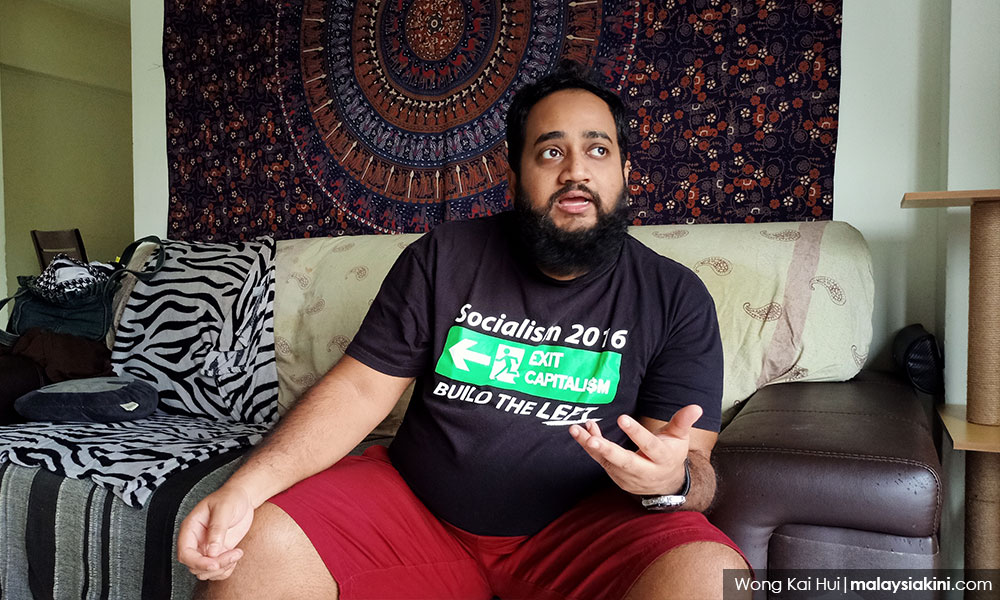
Dorian is the founder of Transmen of Malaysia (ToM). He considers himself an empowered transman, who knows his fundamental rights.
"Many transmen do not want to visit the doctor because of these issues. They only visit the doctor when it is really severe, especially when it concerns the vagina, cervix, uterus or ovaries," he said.
Sharing another experience, Dorian said once he was “observed” by a group of doctors and trainees at a government clinic without his consent.
"They didn't even ask me if it is okay. They just did it," he said, adding that he felt his privacy violated.
In another incident, a receptionist bombarded him with questions about his body.
"The basic thing is, they are not treating us like other patients. We are someone you need to criticise, be told to 'balik ke pangkal jalan' (return to the right path) or someone who is seen as a 'special case' and bring others to see us as well,” he rued.
Strange glances, prying questions and verbal abuse are some of the obstacles transgender people are all too familiar with. Add institutionalised oppression into the mix, and it becomes a hostile environment.
Greater tolerance in the past
However, the healthcare situation was different before the 1980s. Things changed when the National Fatwa Committee (NFC) stepped in.
At present, trans-specific healthcare development in Malaysia has fallen behind other countries. There is rampant discrimination even in general healthcare services.
"People used to come to Malaysia to get surgeries done. At that time, surgeries were covered by the government (for Malaysians)," said Dorian.
Circa 1980, he revealed that a team of doctors and psychologists at the University of Malaya Hospital provided trans-specific healthcare services, including hormone replacement therapy, gender-affirming surgeries and pre-operation counselling services.
"After doing your surgery, you go to the National Registration Department (NRD) and say that you have done your surgery, and 'Bam! Your IC (gender) is changed'," he said.
He noted how some of his older transgender friends have managed to lead normal lives after changing their gender on their IC.
“For younger transgenders like us, it feels like we are moving backwards. It is not supposed to be like that,” he lamented.
The watershed moment was in 1982 when the NFC issued an edict prohibiting sex reassignment surgeries and change of gender status after such procedures, except for intersex (khunsa musykil) people.
According to a report published by Human Rights Watch in 2014, Dr Khairuddin Yusuf and his team, who had performed surgeries on transgender people, successfully lobbied the NRD to allow changing gender markers as the team found their post-operative patients faced difficulties in finding jobs.
"The NFC heard about it. They expressed concern. We then explained the science behind it to them," Khairuddin said, according to the report.
"Our languages were totally different. They didn't get the language of science. I understood what Galileo (Galilei) was facing. Science challenges conventional wisdom.
"I was explaining the importance of transgender people getting jobs, that we have to help our patients. They did not explain their reasoning... Our reasoning was not accepted, so I closed the services," he added.
Clinicians afraid of pushing boundaries
Commenting on this, Subatra said although the fatwa is not legally binding, many healthcare centres do not want to take the risk of violating it.
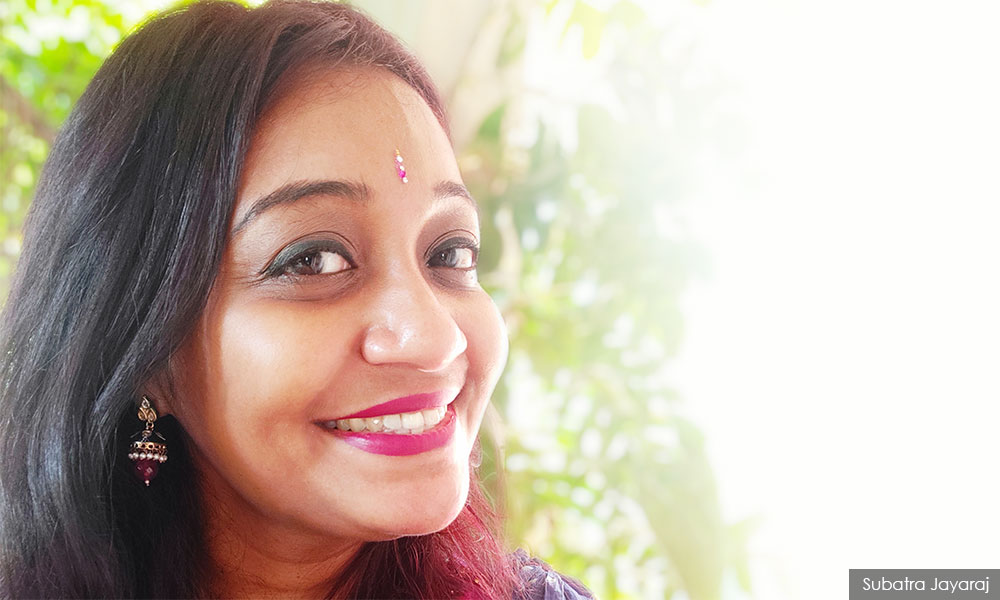
"In my opinion, the current system is more conservative in keeping with the religiopolitical direction of the country.
"There is a need to be seen to be more religious to get approval from your peers, colleagues and bosses.
"Clinicians are also afraid of pushing boundaries due to increased scrutiny by the government," the doctor added.
Subatra obtained her Masters in Medicine at the University of Sydney, majoring in sexual and reproductive health which covers issues of trans health.
After leaving government service, she started a clinic to provide primary care focusing on sexual and reproductive health. Her clients are mostly cisgender women, but there are also transmen clients.
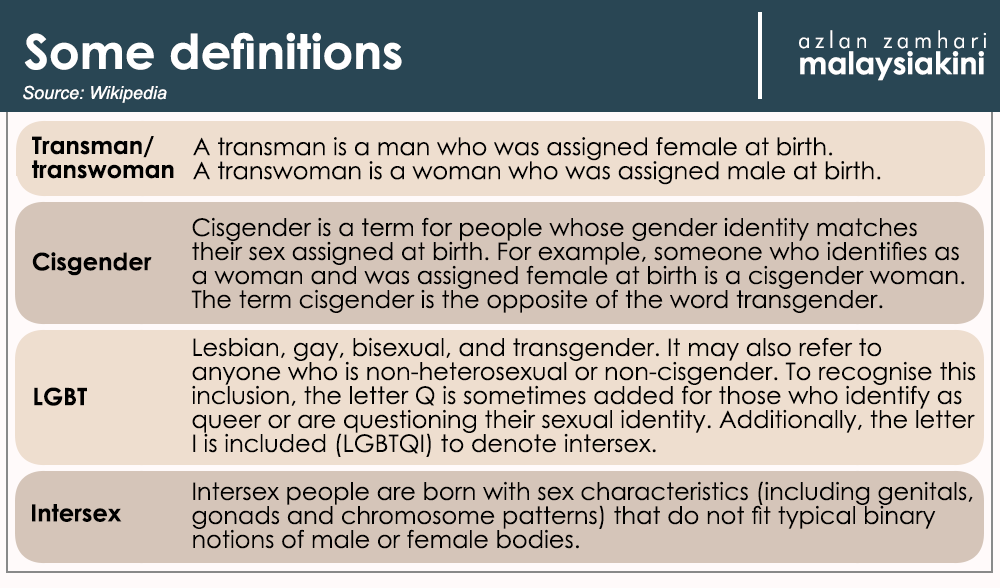
Recalling her time in government hospitals, Subatra said she witnessed "internalised discrimination" and realised the gap in clinical understanding and willingness to learn clinical aspects of trans health in Malaysia.
For example, she said, medical staff referred to such patients with derogatory names such as "pondan" or "songsang". These terms cropped up during discussions and were even written down on documents.
"It makes for an uncomfortable environment that is not welcoming for the trans community," she said, adding that many clinicians are not familiar with concepts of sexual orientation, gender identity and expression and do not know what are the proper terms.
Pointing out that some transgender persons are told by medical staff to “return to the right path”, Subatra said this is the reality in Malaysia.
"Doctors should follow evidence-based medicine and treat our clients non-judgmentally and not based on their own beliefs and practices,” she added.
Sulastri Ariffin, one of the many transgender people Malaysiakini interviewed, is no stranger to being told to “return to the right path”.
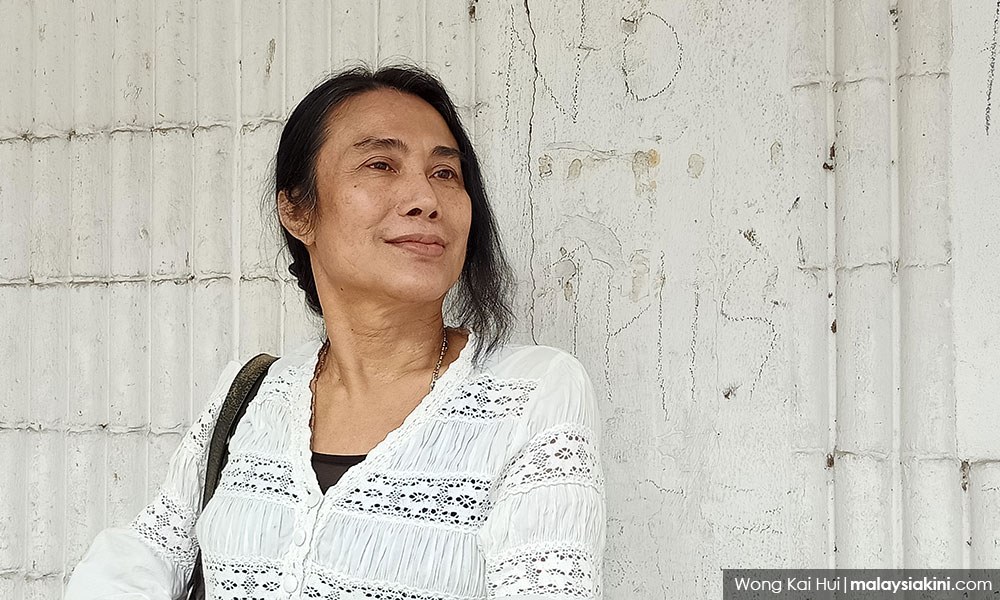
"We went to see the doctor, but why did the doctor give us a speech? It is not a surau or masjid, you are not an ustaz, you should focus on patients' symptoms and medical needs," she said.
Galen Centre for Health and Social Policy chief executive Azrul Mohd Khalib noted that the medical sector is affected by the rise of conservatism.
"Islamic orthodoxy and social conservatism have been on the rise since the 1980s, particularly among the Malay-Muslim community.
"This has affected policy-making structures, even in more secular disciplines such as medicine which are based on science and evidence obtained through research.
“The space for those who do not conform to socially-accepted norms is narrowing, especially for transgender people,” he said.
According to Azrul, institutional persecution and violence have compounded the problem for this vulnerable group.
"The increase in conservatism is primarily due to Malaysian society, in particular the Malay-Muslim community, needing to find comfort and stability in the rigidity of social and religious structures, amidst a changing world," he surmised.
Political leaders are also to blame for perpetuating this stigma towards sexual minorities.
Recently, PAS pushed for the formation of an anti-LGBT taskforce and making gender change an offence for Muslims, among others. - Malaysiakini, 9/2/2021
Part 2: Orked's plight - from med student to injecting black-market hormones
When Orked decided to pursue a medical degree, little did she realise that it would lead her to the point of wanting to end her life.
Before she was born, Universiti Malaya Hospital had allowed transgender people to be themselves but much had changed since then.
"The way I speak is very feminine. And the way the doctors looked at me showed that they don't want people like me to become part of their profession,” she told Malaysiakini.
Unable to conceal her “trans-ness”, Orked, 21, said she fell into a “dark spiral” and was later diagnosed with schizophrenia.
"I had multiple suicide attempts and I was in a psychiatric ward for several weeks. In the ward, I told them I am a transgender person and the Malay psychiatrists refused to acknowledge our existence," she revealed.
"They tried to use religion to help me, asked me to pray and be close to God. I didn't see how that would help me because it (schizophrenia) is an actual pathology."
Last year, Orked quit her medical studies to embark on a journey of transition.
"At first, I thought that I should prove them wrong, to change their perception of people like me. But it was taking too much of a toll on me...
“If society or the medical field was more accepting, I would be inclined to complete my studies," she added.
Orked found work at a burger joint in Kuala Lumpur and with the money she earned, began purchasing hormones from the black market, which is the only option for her, knowing it could lead to adverse side effects.
"We didn't learn trans-specific healthcare needs (in medical school). I literally learned everything online. I learned how to inject myself with hormones from the Internet.
"I don't get to check myself. If my hormones exceed normal levels, the side effects would be bad but this is the life we are forced to live."
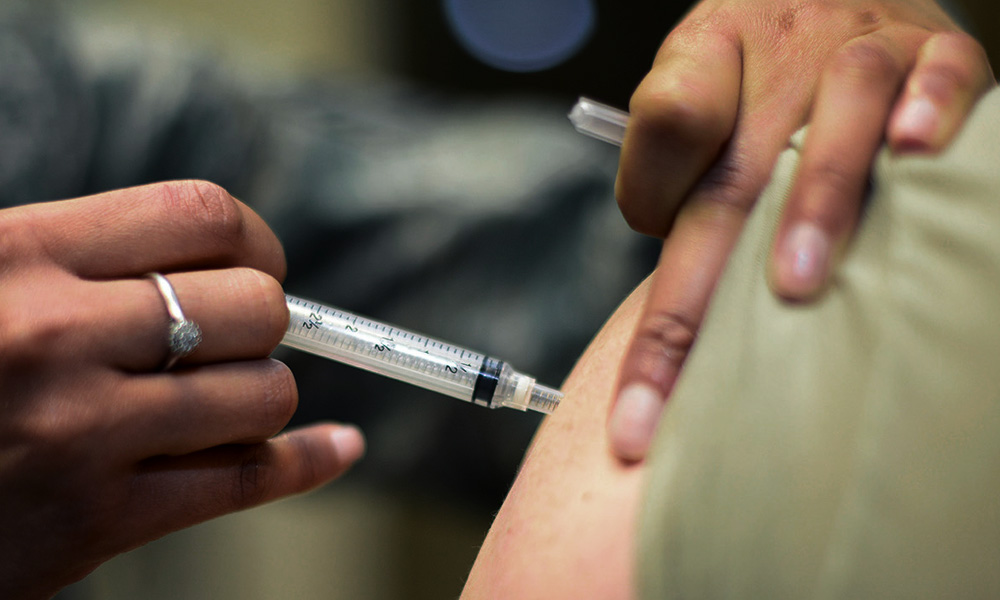
Furthermore, Orked said she could not afford the tests to determine hormone levels.
"I am not from a privileged family, I am from a B40 (bottom 40 percent of income earners) family. Being a transgender person, you can get your hormones checked every month if you are rich."
Although happier now that she is able to embrace her true self, Orked, however, is still saddled with concerns about her health.
This is because some of her transgender friends suffered from kidney, lung, and blood-related problems due to injecting themselves with black-market hormones.
“If we can have specialised medical services for old people, why not for transgender people? This is a violation of human rights,” said Orked.
No choice but to look for alternatives
According to Dr Subatra Jayaraj, a former government doctor who now runs her own clinic, trans-specific healthcare services gradually disappeared after the 1980s in Malaysia.
However, she said the transgender population still exists and their medical needs never vanished. This has forced them to turn to alternatives.
Dorian Wilde, the founder of Transmen of Malaysia (ToM), said the public might feel that transgender-specific healthcare is unimportant.
Stressing that it is a necessity, he said: "They don't understand. Banning it doesn't mean people would stop it (transitioning)."
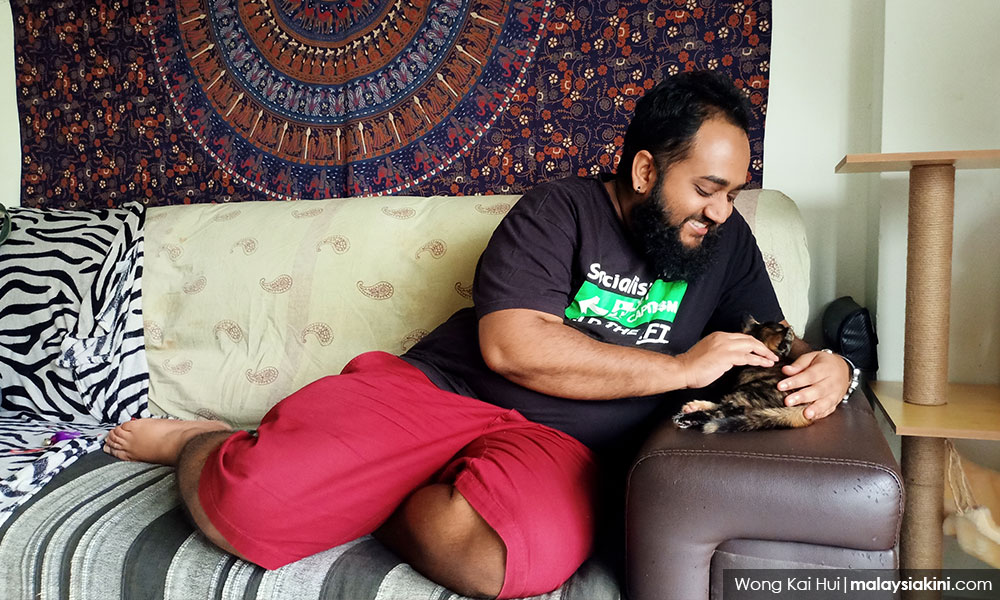
Speaking from experience, Dorian said when a person is uncomfortable with his or her sexual identity, it would lead to dysphoria and anxiety as well as suicidal tendencies.
"Even though people are strapped for cash, they would still do it (turn to the black market). For us, this is important. It is life-changing,” he explained.
Trans-specific healthcare services include hormone replacement therapies, gender-affirming surgeries (also known as gender reassignment surgeries), and affirming counselling services.
Not all transgender people would choose to undergo surgery, preferring instead to take hormones to modify visible characteristics.
At the same time, appropriate hormonal therapy is required for those who undergo surgeries as well.
To ensure safety and to avoid complications with regard to hormonal therapy, experts note that medical advice is essential.
In certain countries, puberty blockers are used to suppress the development of biological secondary sex characteristics in children who identify themselves as transgender.
Despite having side effects, it helps reduce the medical cost for transitioning surgery and the trauma of developing sex characteristics that do not suit the transgender teenager's gender identity.
As there are no proper and open channels for the transgender community in Malaysia to access hormonal therapy, most undergo the transitioning process without proper medical supervision.
Subatra has been working with the transgender community for over five years and aims to provide non-discriminative, affordable, woman and trans-friendly healthcare for lower to middle-income individuals who cannot afford private hospitals.

Besides the high cost, she said transgender patients also faced problems such as discrimination amongst healthcare workers.
On the same note, Subatra said doctors also encountered difficulties in providing trans health facilities due to inexperience and stigma.
"They don't want to be seen as a 'transgender clinic'. There is also difficulty purchasing recommended medication as well," she explained.
Religiopolitical factors
Subatra said misusing hormones such as taking the wrong medication or dosage increased the risk of complications such as blood clots and stroke.
"Some transmen on testosterone are on a very high dose such as those used by bodybuilders which is harmful in the long run."
Emphasising that transgender healthcare should be holistic, Subatra, however, noted that the direction of healthcare development in Malaysia is impeded due to religiopolitical factors.
“We are a secular nation. We have doctors and clients from many religions - why should a particular religion dictate healthcare policies for all?”
However, a Muslim doctor, who spoke on condition of anonymity, argued that the healthcare system is inclusive of sexual minorities as well.
"Of course, transwomen are not allowed to do sex reassignment surgeries in Malaysia and cross-dressing is considered 'haram' (forbidden in Islam).
“But if a transgender person comes to our clinic, our service should be without boundaries. She should be regarded as another patient who needs medical attention," she stressed.
The doctor pointed out that men who have sex with men make up the bulk of HIV patients but are still entitled to free treatment.
She also cited how the Health Ministry has been collaborating with local NGOs to provide STI (sexually transmitted infection) screening and other services as well as to raise awareness among transgender people.
"We are still getting sufficient budget to run our STI clinic. Transgender people with diabetes or hypertension can still get their treatment from clinics or hospitals," she added.
To address the issue of transphobia amongst healthcare providers, the doctor said the ministry has organised numerous courses and set up "friendly clinics".
'Trans-friendly' clinics?
Offering a different view, transwoman Sulastri Ariffin, 60, expressed reservations about these so-called “friendly clinics”.
"They claim these are 'trans-friendly' clinics but there are no trans-specific healthcare services like hormone therapy or surgery. You can't even open your mouth to ask about it.
"I know the ministry would say they had been setting up some trans-friendly clinics. Of course, they need to be friendly because they have their KPI (key performance indicator) to meet,” she added.
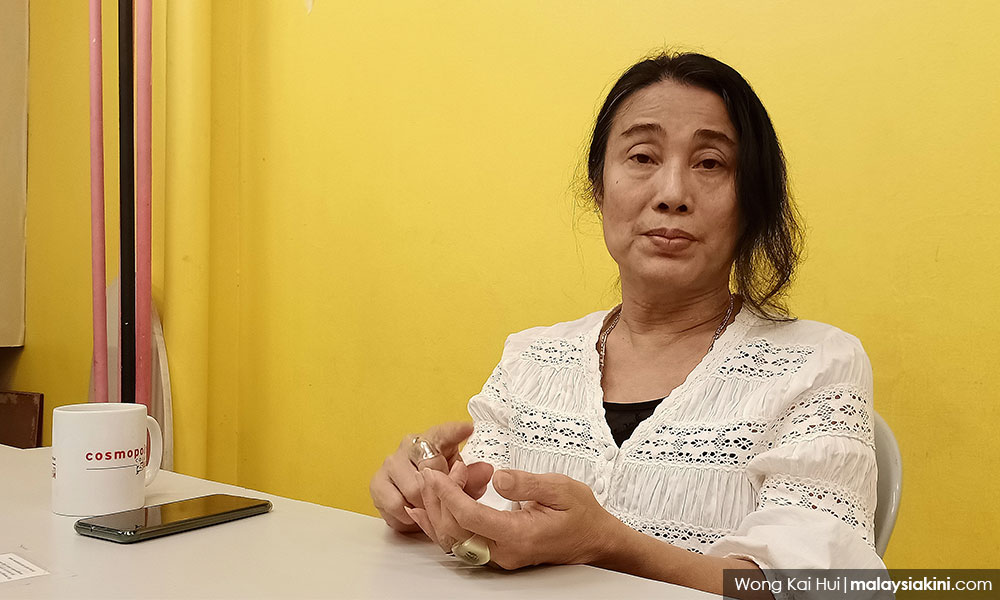
Relating a personal experience, Sulastri said the assumption that transgender people are highly susceptible to STIs and HIV also contributed to stigma and discrimination.
When she visited a clinic for a nerve problem, the doctor appeared alarmed and asked her to undergo a blood test without any clear explanation.
It was later that Sulastri discovered she had undergone an HIV test.
“The doctor did not explain why I needed a blood test for a nerve problem. They seem to think that all transgender people must do an HIV test.
"I didn't mention any HIV-related symptoms. I have been educating the transgender community about HIV and STIs, I know what the symptoms are,” she said.
Despite the constraints, there are doctors attempting to serve the community by providing advice on safe hormone usage.
"We provide information on the effects of hormones on their liver, cholesterol level, circulation, and others. We also offer to do checks.
"Many of them are keen to know their hormone level. We don’t have that facility (at government clinics) but we help to take their blood and outsource it to a private lab if they can afford it," said one doctor, who declined to be named.
Include, not exclude
Last December, trans-led organisation Seed Foundation and Galen Centre for Health and Social Policy published a guideline titled 'Practical Guidelines for Trans-specific Primary Healthcare in Malaysia'.

Galen Centre chief executive Azrul Mohd Khalid said a legal framework for the recognition of issues affecting transgender persons is essential for trans-friendly services.
"When the existence of this community is not properly recognised within the healthcare system, appropriate services will be difficult to set up even if done independently.
"When their existence is not recognised, their needs are not acknowledged and left unaddressed. The training of medical practitioners should also include the issues and challenges of trans-friendly healthcare services," he told Malaysiakini.
"Religious and social
mores which seek to exclude rather than include people should be left
aside. They have no place in a healthcare environment.” - Malaysiakini, 10/2/2021
Part 1: Medical woes: Try stepping into the shoes of a transgender person





No comments:
Post a Comment